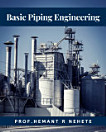Methanol Synthesis from CO2: towards achieving Carbon Neutrality
About this ebook
About the author
Lebohang Macheli holds a PhD in Chemical Engineering from University of Cape Town, Cape Town, South Africa. He is Research scientist in Chemical Engineering with specialty in catalysis and energy engineering (air and water), and Teaching Assistant at University of Cape Town.
Professor Yao Yali holds a PhD in Chemical Engineering from University of the Witwatersrand, Johannesburg, South Africa. She is associate professor in the Institute for the Development of Energy for African Sustainability (IDEAS) at University of South Africa (UNISA), and co-leader of the research group on alternative fuel production via Fischer-Tropsch synthesis (XTL/FTS); The leader of the desulfurization research group. Her research work focuses on production of alternative fuels and purification of crude oil by means of ‘green’ technology. She spent my time on laboratory research and the design of contract projects in this field. Some of my research results have been applied successfully in industry projects.
Linda L. Jewell holds a PhD in Chemical Engineering from University of the Witwatersrand, Johannesburg, South Africa. Her research interests include Fischer-Tropsch Catalysis, CO hydrogenation, Environmental catalysis, Open Distance e-Learning, Field of Specialisation, and Heterogeneous Catalysis.
Xinying Liu is a full professor and head of catalysis research group at the Institute for Development of Energy for African Sustainability, a research institute at the University of South Africa. He is an expert in the field of catalytic and nano inorganic materials for energy use, especially in Fischer Tropsch Synthesis (FTS), carbon dioxide utilization, biomass to energy systems and alternative liquid fuel processes. He also has over 15 years of industrial experiences in carbonaceous material indirect liquefaction process (XTL process), in pilot scale XTL facility design and operation, and small/medium scale XTL plant design, and to couple Fischer Tropsch process with other renewable process including concentrated solar power, and carbon dioxide capture.



